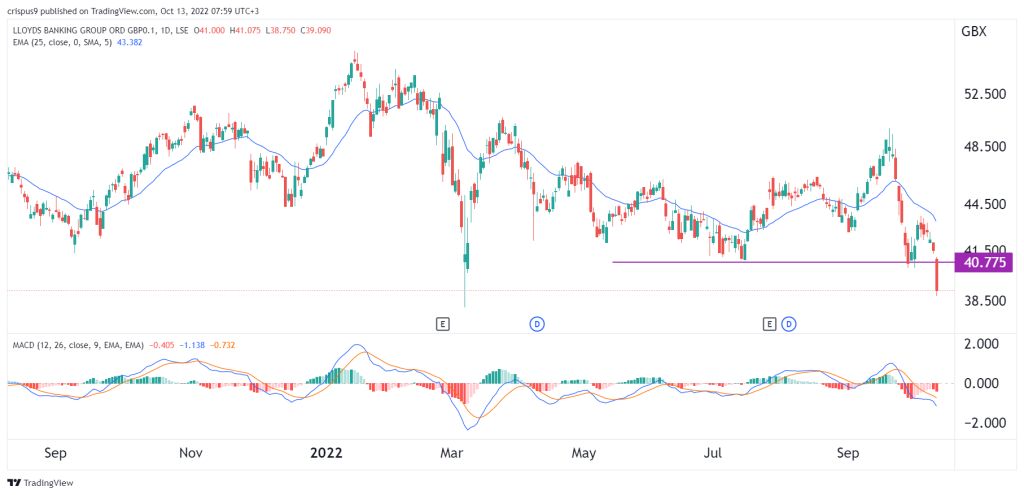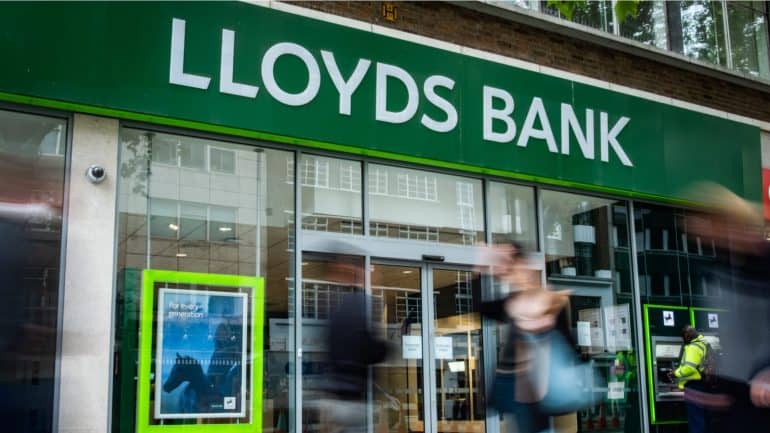- Lloyds share price plunged to the lowest level since March this year as concerns about the UK economy continued
Lloyds share price plunged to the lowest level since March this year as concerns about the UK economy continued. The stock slipped to a low of 38.75p, which was about 21.5% below the highest level in September. It has crashed by more than 20% in 2022 even as the Bank of England (BoE) delivered several rate hikes.
Bank earnings ahead
Lloyds and other UK banks have come under intense pressure in the past few weeks as investors focus on the recent mini-budget by Kwasi Kwarteng. The budget called for significant tax cuts valued at over 45 billion pounds. Some of those cuts were for high-net-worth individuals while most of them for companies.
A panic in the financial market has ensued since then as some analysts predict that the UK was slowly becoming an emerging market. Most importantly, this panic has pushed the Bank of England (BOE) to intervene by buying loads of long-term government bonds.
And in a statement on Wednesday, the bank’s chief economist said that the bank will likely deliver a big rate hike in the coming weeks. Analysts are expecting an emergency 100 basis points hikes. Such a rate hike will be positive for Lloyds and other deposit-taking institutions in the UK.
The next key catalyst for the Lloyds share price will be the upcoming American bank earnings season that will start on Friday. It will start with banks like JP Morgan, Wells Fargo, Morgan Stanley, Citigroup, and PNC Financial.
These institutions have over $10 trillion in assets, representing about 67% of global systemic banks. Their earnings will set the tone for other large banking stocks, including Lloyds and Barclays. In a report, analysts at Morgan Stanley warned investors to brace for rocky ride.
Lloyds share price forecast
The daily chart shows that Lloyds share price crashed by more than 5% on Wednesday. As it dropped, it managed to move below the important support level at 40.77p, which was the lowest level on July 15. It has crashed below all moving averages while the MACD moved below the neutral level. The Relative Strength Index (RSI) has moved below the neutral level.
Therefore, the stock will likely remain under intense pressure as worries of the UK economy continue. This could see it drop to about 35 pence. A move above the resistance at 40.77p will invalidate the bearish view.





